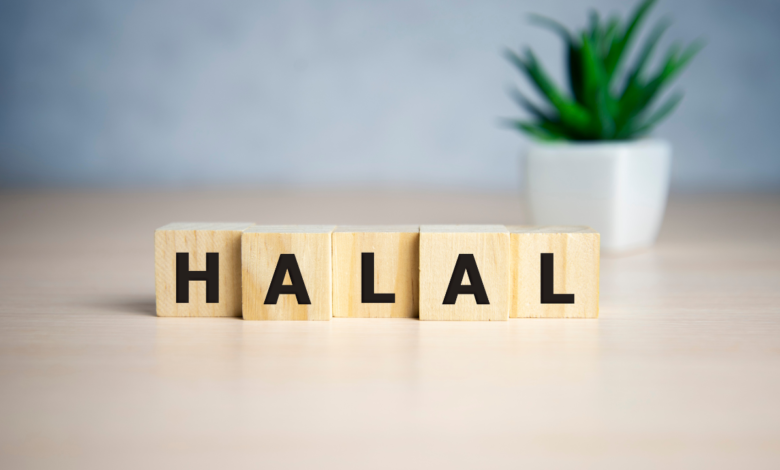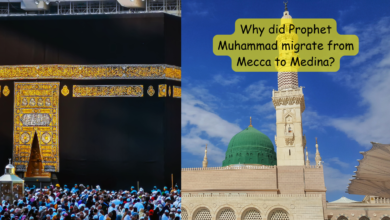
What is Halal in Islam?
Halal, in Islamic terminology, means “permissible” or “lawful.” It refers to anything that is allowed or permitted according to Islamic law (Shariah).

Introduction
Halal, an Arabic term that means “permissible” or “lawful,” is a fundamental concept in Islam that guides the dietary, ethical, and lifestyle choices of Muslims around the world. It outlines what is allowed and encouraged in Islamic law, which is derived from the Quran, the holy book of Islam, and the Hadith, the sayings and actions of the Prophet Muhammad (peace be upon him). This article explores the concept of Halal in Islam, its significance, and its broader applications beyond just food.
The Concept of Halal
In Islam, the concept of Halal is closely related to the idea of Taqwa, which means God-consciousness or piety. Halal refers to anything that is lawful and pleasing to Allah, the Islamic name for God, while its opposite is Haram, meaning forbidden or unlawful. Muslims are expected to live their lives in accordance with Halal principles to maintain their spiritual well-being and righteousness.
Also Check
- Islamic dreaming
- Patience of prophet Muhammad (PBUH)
- Principles of Sharia law
- Why is Friday important for Muslims?
- How was the Quran revealed to Muhammad (PUBH)?
Halal Food
One of the most well-known applications of Halal is in the realm of food and drink. Halal food adheres to specific guidelines set by Islamic law. These guidelines include:
- Prohibited Animals: Muslims are prohibited from consuming pork and its by-products. Additionally, animals that die of themselves (carrion), blood, and animals sacrificed to other than Allah are considered Haram.
- Method of Slaughter: Animals that are Halal must be slaughtered by a Muslim who is of sound mind, pronouncing the name of Allah during the act. The method of slaughter must be humane and should involve cutting the throat, windpipe, and blood vessels without severing the spinal cord.
- Avoiding Cross-Contamination: Utensils and cooking surfaces used for Halal and Haram foods should be kept separate to prevent cross-contamination.
- Alcohol and Intoxicants: The consumption of alcohol and any intoxicating substances is prohibited in Islam.
Halal food goes beyond the ingredients themselves; it also encompasses the ethical treatment of animals and ensuring that food is prepared in a clean and hygienic manner.
Beyond Food: Halal in Daily Life
Halal principles extend beyond just dietary choices. They also guide other aspects of daily life, including:
- Earning a Living: Muslims are encouraged to seek lawful (Halal) sources of income and to avoid occupations that involve unethical practices or the production of Haram goods such as alcohol, gambling, or interest-based finance.
- Ethical Behavior: Muslims are expected to maintain ethical conduct in all aspects of life, including truthfulness, honesty, and fairness.
- Modesty in Dress: Muslims are required to dress modestly, covering their bodies appropriately to maintain their dignity and respect for themselves and others.
- Avoiding Extravagance and Wastefulness: Wastefulness and extravagant spending are discouraged, as Islam promotes moderation and frugality.
- Avoiding Backbiting and Slander: Speaking ill of others behind their backs (backbiting) and spreading false information (slander) are strictly prohibited in Islam.
Significance of Halal in Islam
The concept of Halal is of great significance in Islam for several reasons:
- Spiritual Well-being: Adhering to Halal principles helps Muslims maintain their spiritual well-being by ensuring that they live a life in accordance with God’s guidance.
- Ethical Living: Halal principles promote ethical and moral behavior, emphasizing honesty, integrity, and compassion.
- Community Cohesion: Following Halal practices fosters a sense of community among Muslims, as they share common dietary and ethical values.
- Mindful Consumption: Muslims are encouraged to be mindful of what they eat, ensuring that it aligns with their religious beliefs and values.
- Submission to God: Ultimately, Halal is about submission to Allah’s will, demonstrating obedience to God’s commands in all aspects of life.
Conclusion
Halal in Islam encompasses more than just dietary guidelines; it is a comprehensive framework that guides the ethical and moral conduct of Muslims in their daily lives. By adhering to Halal principles, Muslims strive to live in accordance with God’s will, seeking spiritual well-being, ethical living, and community cohesion. It is a reminder that Islam is not just a religion of rituals but a way of life that encourages mindfulness, compassion, and submission to the divine.
FAQs about Halal in Islam
What does the term “Halal” mean in Islam?
Halal, in Islamic terminology, means “permissible” or “lawful.” It refers to anything that is allowed or permitted according to Islamic law (Shariah).
What is the opposite of Halal in Islam?
The opposite of Halal is “Haram,” which means “forbidden” or “prohibited.” Haram refers to anything that is not permissible in Islam.
Is Halal limited to food and drinks only?
No, Halal applies to various aspects of life, including food, drinks, behavior, business transactions, and more. It encompasses a wide range of activities and choices.
Why is Halal important in Islam?
Halal is important because it ensures that Muslims consume and engage in activities that are in accordance with Islamic principles and laws. It promotes ethical and lawful living.
What are the key principles that determine whether something is Halal or Haram?
The key principles include avoiding anything that is explicitly prohibited in the Quran and the Hadith (sayings and actions of the Prophet Muhammad). Additionally, avoiding anything that is harmful or impure is essential.
Is there a specific certification process for Halal products?
Yes, there are certification bodies and processes for Halal products, especially in the food industry. These organizations ensure that products meet the necessary Halal criteria and standards.
Can non-Muslims consume Halal food?
Yes, non-Muslims can consume Halal food. Halal food is not restricted to Muslims, and many people choose it for various reasons, including dietary preferences and ethical considerations.
Is Halal slaughter humane?
Halal slaughter, when done correctly, is intended to be humane. Islamic law emphasizes the swift and humane treatment of animals, and the method of slaughter involves a quick and painless cut to the throat while invoking the name of Allah.
Are there variations in Halal standards among different Muslim communities or countries?
Yes, there can be variations in Halal standards among different Muslim communities and countries. Some factors that may contribute to these variations include interpretations of Islamic law and cultural differences.
Is Halal limited to Islamic countries or communities?
No, Halal products and practices can be found worldwide, and they cater to both Muslim and non-Muslim populations. It is a global concept, and Halal-certified products are often available in many countries.






